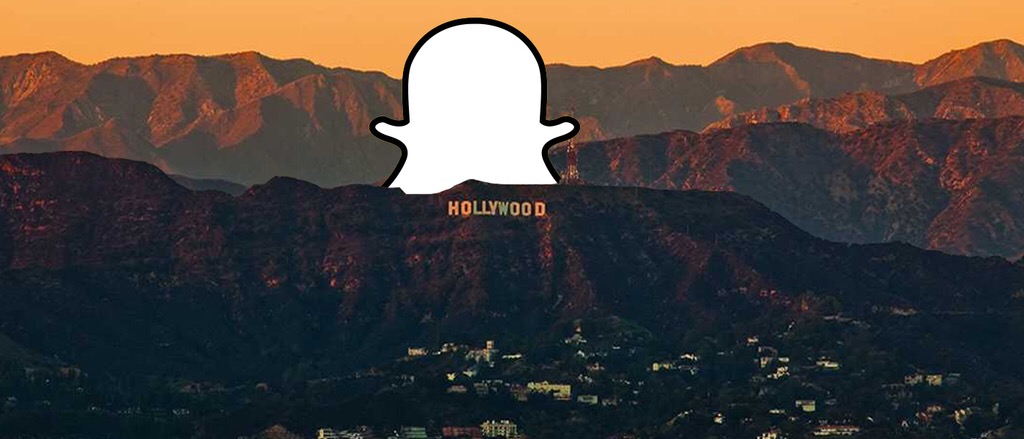Secure your place at the Digiday Media Buying Summit in Nashville, March 2-4

One of Snapchat’s most prominent original series partners is a Venice, California-based media startup founded by a scion of the Murdoch media empire.
Earlier this week, Snap greenlit an eight-episode unscripted comedy series from Vertical Networks, a mobile-focused media startup from Elisabeth Murdoch, and production studio Avalon, which is best known for Amazon’s “Catastrophe” and HBO’s “Last Week Tonight with John Oliver.” “Ghost Hunt” is hosted by comedian Matteo Lane, and will focus on reconnecting people with past dates that “ghosted” — disappeared — on them. Debuting later this year, it’s the fourth short-form show Snap has commissioned from Vertical Networks.
“If you rewind back to 18 months ago, we were built to be a mobile-first content studio,” said Tom Wright, CEO of Vertical Networks.
Vertical Network’s first product wasn’t a Snapchat show, but an original daily channel called Brother, which targets millennial males. Launched almost a year ago, Brother now reaches more than 38 million unique viewers per month, according to Wright.
Brother has proven to be a testing ground for show ideas and formats that Vertical Networks then pitches to Snap as part of the company’s expanding Snapchat shows initiative.
Take, for instance, another Vertical Networks show called “Yes Theory.” The show follows four friends from different countries as they travel the world and meet people seeking help to conquer an everyday fear. This idea wasn’t “plucked out of the sky,” Wright said. Instead, Brother featured the four friends traveling around the world and doing things like crashing the “La La Land” Hollywood premiere or taking a Christmas card photo with Canadian Prime Minister Justin Trudeau. Roughly 6 to 7 million people watched this early version of “Yes Theory” on Brother, which gave the company the confidence to pitch it to Snap.
This testing process continues. Yesterday, all 16 pods within Brother’s daily edition were devoted to a show format where a man tries out corsets, cinchers and Spanx to get a better understanding of what women have to deal with that men largely can’t relate to.
“What we’re trying to do is not pitch a piece of paper,” Wright said. “We’ve got data and insights that put us on a specific path to see what a bigger version of the show could look like.”
Vertical Networks’ most successful Snapchat show to date, “Phone Swap,” is also the most popular show on the platform. The show features two strangers in each episode who get full access to the other person’s phone before they go on a date. In its first season, the series averaged 11 million viewers per episode, prompting a recent renewal by Snap. In the second season, both Vertical Networks and Snap will sell sponsorships and integration opportunities to advertisers.
Wright describes a “special relationship” with Snap, through which — so far — it’s the only non-legacy media company making shows for Snapchat Discover. Other Snapchat show partners include NBCUniversal, A+E Networks and Time Warner. Of course, it’s important to note that Snap is an investor in Vertical Networks, owning about 40 percent of the company, according to Recode.
Besides focusing on Snapchat, Vertical Networks is also looking toward TV. For instance, Vertical Networks has partnered with production studio Endemol Shine North America — formed after a merger between Endemol and Elisabeth Murdoch’s former company, Shine Group — to develop and pitch a TV version of “Yes Theory.” Similarly, Vertical Networks has recruited Robin Ashbrook, an executive producer behind “MasterChef,” to develop a TV version of “Phone Swap.”
“We come up with short-form [intellectual property] that we know has the capacity to travel,” said Wright. “Where most [of Snap’s] broadcast partners are typically coming up with companion pieces to their existing content, we’re engineered to build [intellectual property] that we can launch on mobile and then take it elsewhere.”
More in Media

WTF is Markdown for AI agents?
AI systems prefer structured formats or APIs to ingest and surface content more efficiently. And “markdown” has quickly become the common language used by AI systems and agents.

From feeds to streets: How mega influencer Haley Baylee is diversifying beyond platform algorithms
Kalil is partnering with LinkNYC to take her social media content into the real world and the streets of NYC.

‘A brand trip’: How the creator economy showed up at this year’s Super Bowl
Super Bowl 2026 had more on-the-ground brand activations and creator participation than ever, showcasing how it’s become a massive IRL moment for the creator economy.








